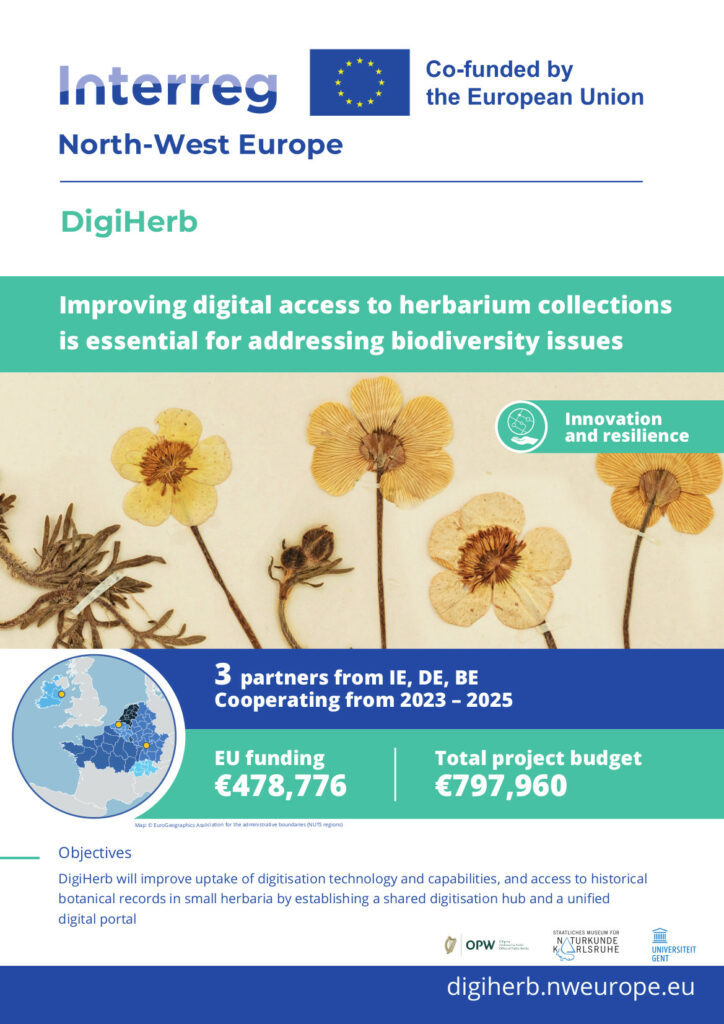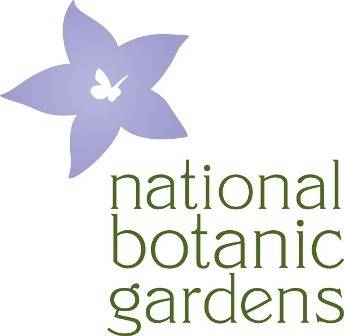An ambitious herbarium digitisation project, named DigiHerb, has been approved for funding by the Interreg North-West Europe Programme. The National Herbarium in the National Botanic Gardens of Ireland (NBG-OPW) is spearheading this initiative in partnership with The State Museum of Natural History Karlsruhe and Ghent University. The project will receive a €478,776 grant over an 18-month period through co-funding from the EU. In Ireland, the project will result in the digitisation and label transcription for approximately 100,000 sheets of Irish specimens housed in the National Herbarium.
Herbarium specimens are used for describing our flora and for defining and naming species. The specimens can inform us about the interaction of plants with their environment and about the history of plant discovery in western science. What makes herbarium specimens so useful is the data associated with them which is contained on the label or on notes on the specimen. The details of the plant name, collection location, collector, date and often additional notes on habitat or altitude are immensely important. The combined data from all these specimens allow us to track past changes and help predict future impacts.
The digitised specimens from the three collaborating partners will be made accessible to the public via a shared online platform. This project marks the first instance in the EU where transnational herbarium collections are consolidated under a unified digital portal and data management system.
Upon the completion of our digital catalogues, we anticipate that the herbarium specimens will become a vibrant subject for a diverse range of scientific studies, education and outreach activities. The anticipated outcome is enhanced digital accessibility to collections in small or medium sized herbaria such as the one in NBG-OPW, thereby boosting our research and innovation capacities.
For project updates follow @digiherb2024 on Twitter.

